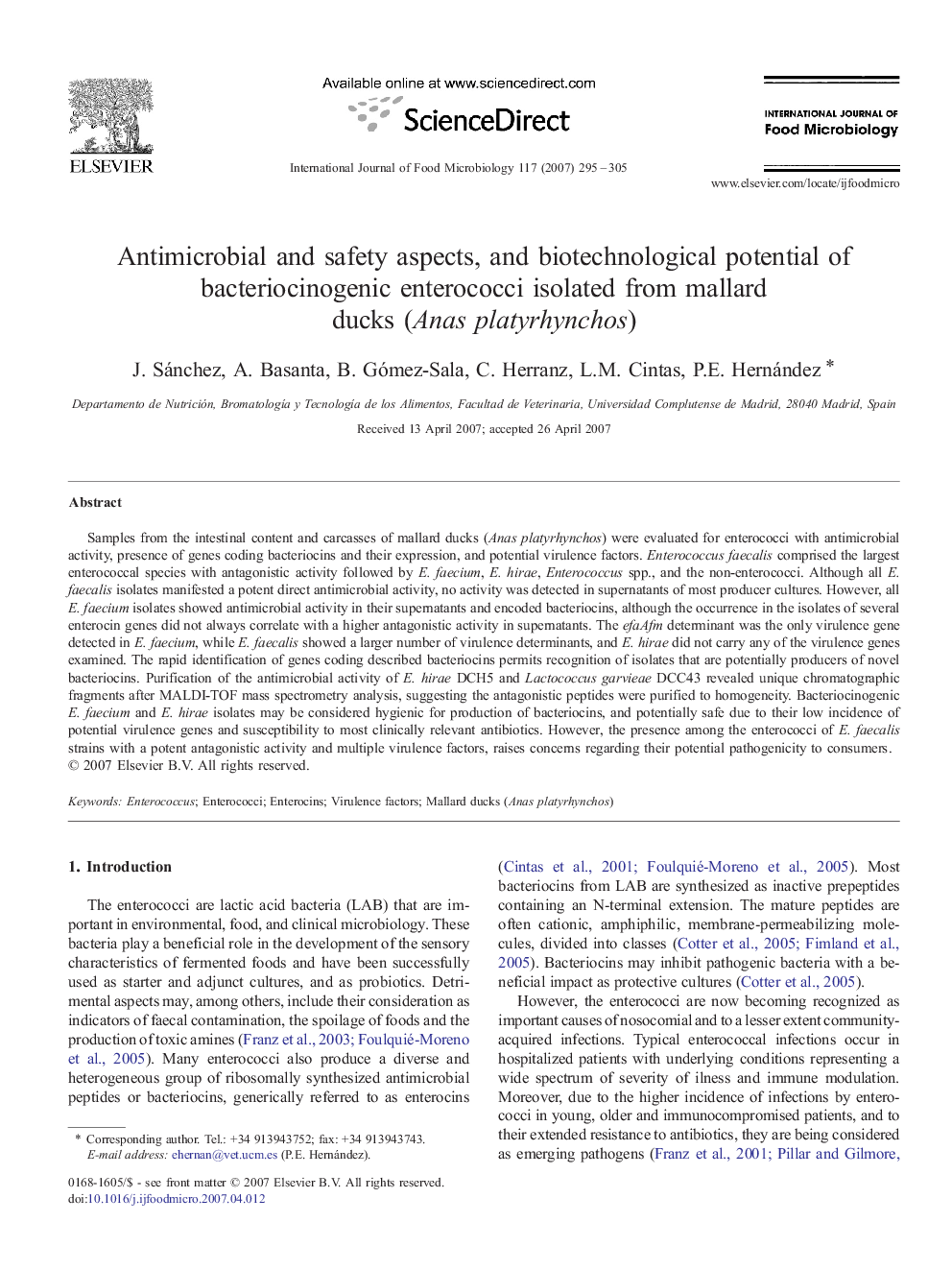| Article ID | Journal | Published Year | Pages | File Type |
|---|---|---|---|---|
| 4369805 | International Journal of Food Microbiology | 2007 | 11 Pages |
Samples from the intestinal content and carcasses of mallard ducks (Anas platyrhynchos) were evaluated for enterococci with antimicrobial activity, presence of genes coding bacteriocins and their expression, and potential virulence factors. Enterococcus faecalis comprised the largest enterococcal species with antagonistic activity followed by E. faecium, E. hirae, Enterococcus spp., and the non-enterococci. Although all E. faecalis isolates manifested a potent direct antimicrobial activity, no activity was detected in supernatants of most producer cultures. However, all E. faecium isolates showed antimicrobial activity in their supernatants and encoded bacteriocins, although the occurrence in the isolates of several enterocin genes did not always correlate with a higher antagonistic activity in supernatants. The efaAfm determinant was the only virulence gene detected in E. faecium, while E. faecalis showed a larger number of virulence determinants, and E. hirae did not carry any of the virulence genes examined. The rapid identification of genes coding described bacteriocins permits recognition of isolates that are potentially producers of novel bacteriocins. Purification of the antimicrobial activity of E. hirae DCH5 and Lactococcus garvieae DCC43 revealed unique chromatographic fragments after MALDI-TOF mass spectrometry analysis, suggesting the antagonistic peptides were purified to homogeneity. Bacteriocinogenic E. faecium and E. hirae isolates may be considered hygienic for production of bacteriocins, and potentially safe due to their low incidence of potential virulence genes and susceptibility to most clinically relevant antibiotics. However, the presence among the enterococci of E. faecalis strains with a potent antagonistic activity and multiple virulence factors, raises concerns regarding their potential pathogenicity to consumers.
